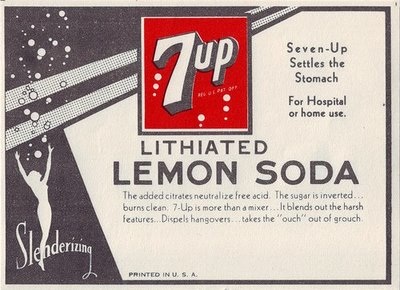
"One could make a case that lithium is the Cinderella of psychotropic medications, neglected and ill used. Reported by an Australian psychiatrist, John Cade, in 1949 to be an effective treatment for bipolar disorder (it was approved as a drug by the Food and Drug Administration in 1970) its efficacy in mood disorders and suicide prevention has been documented as well as or better than virtually any other psychotropic medication. But it retains a grim and undeserved reputation, perhaps because it was originally associated in the public mind with serious mental illness and because, like many medications, lithium can have serious side effects if not monitored properly. As a psychiatrist, I can tell you that because of its stigma, lithium as a medication is a hard sell to patients with serious mood disorders who could clearly benefit from treatment. But there are undoubtedly other reasons for its neglect. Pharmaceutical companies have nothing to gain from this cheap, ubiquitous element."
 RSS Feed
RSS Feed
